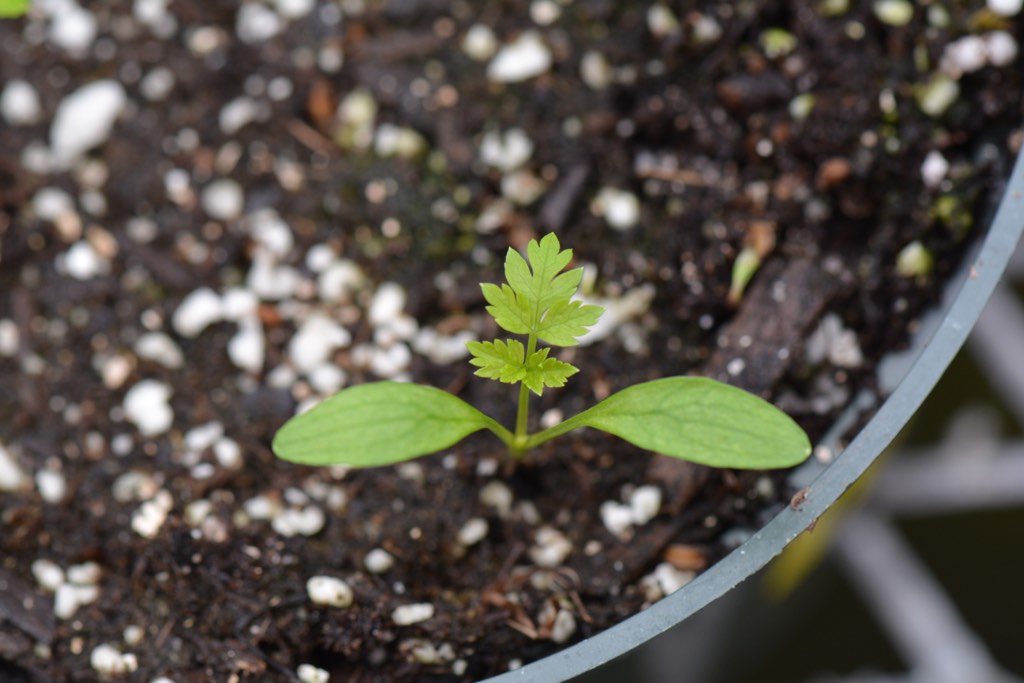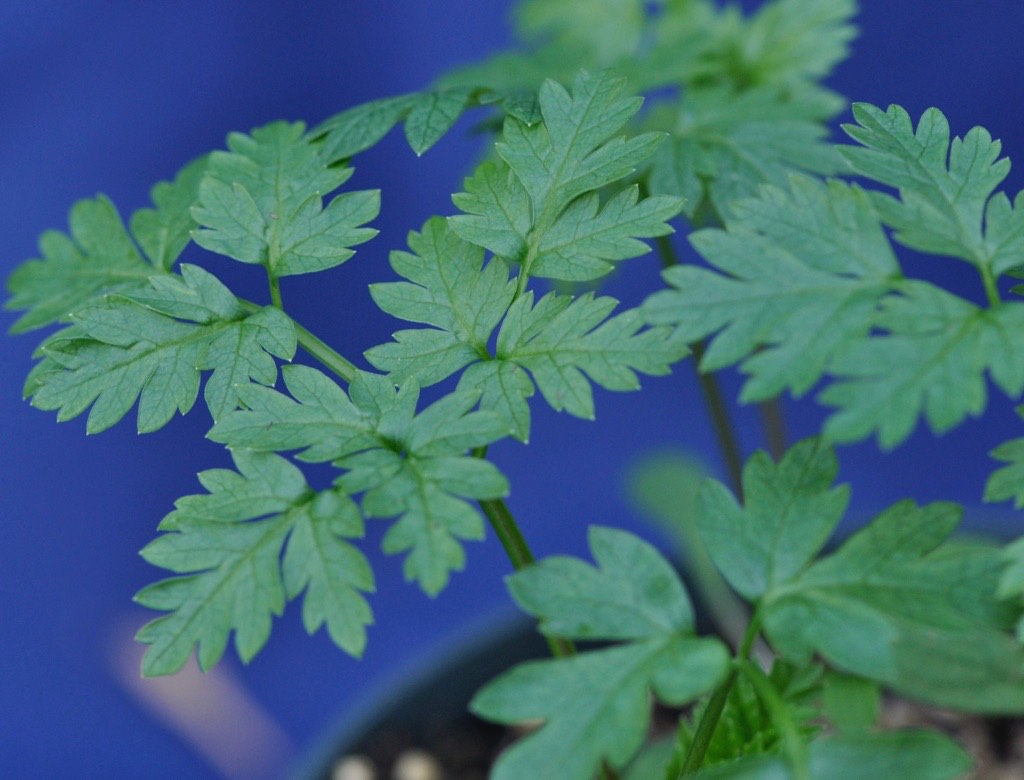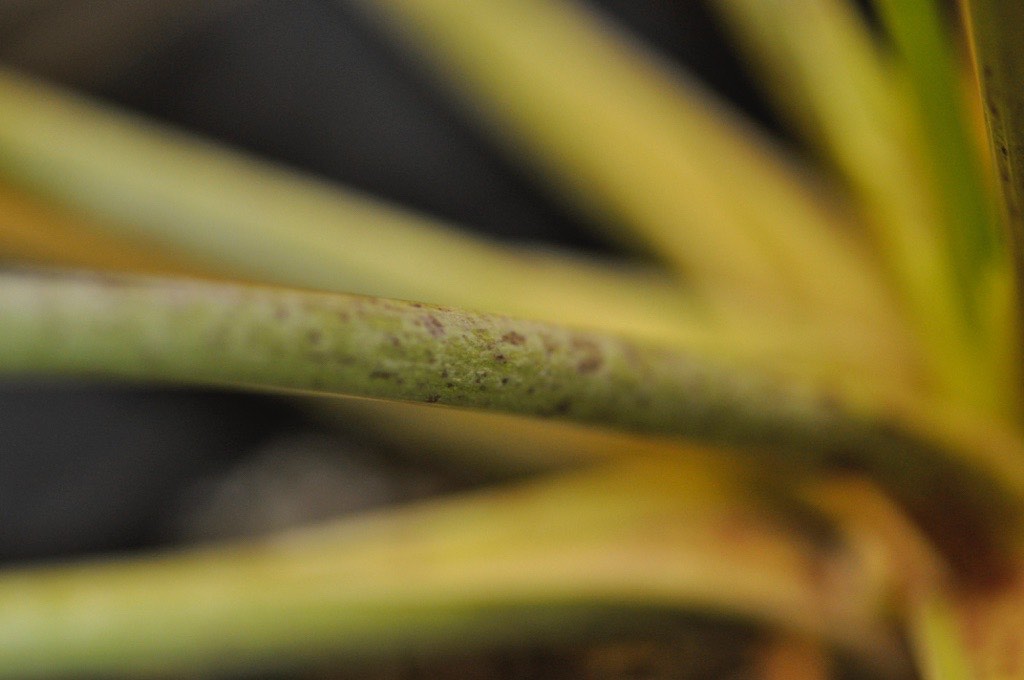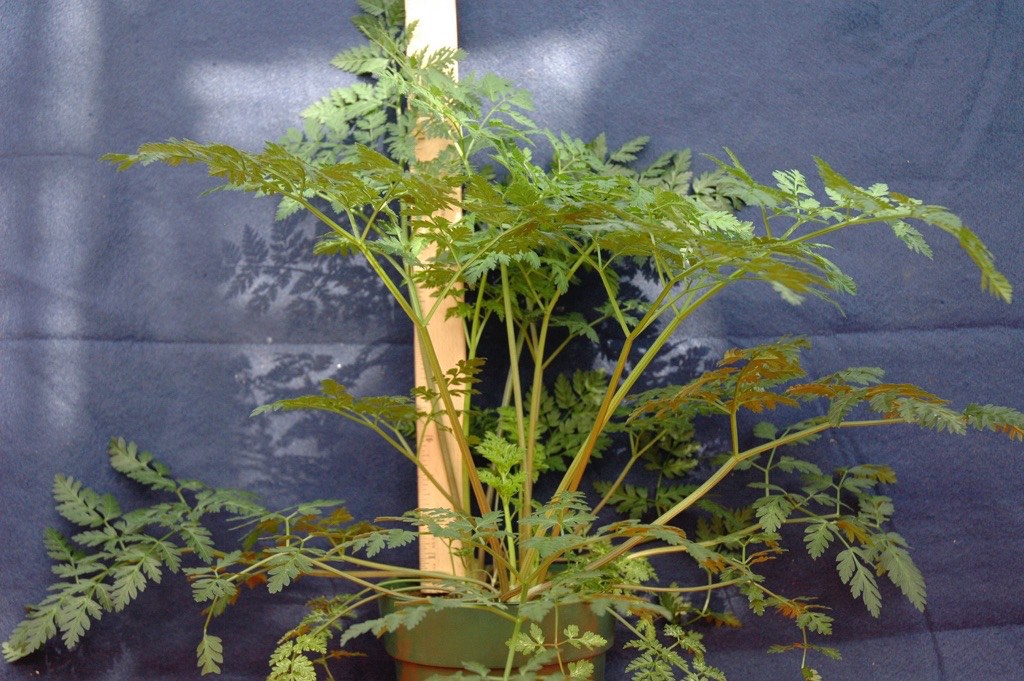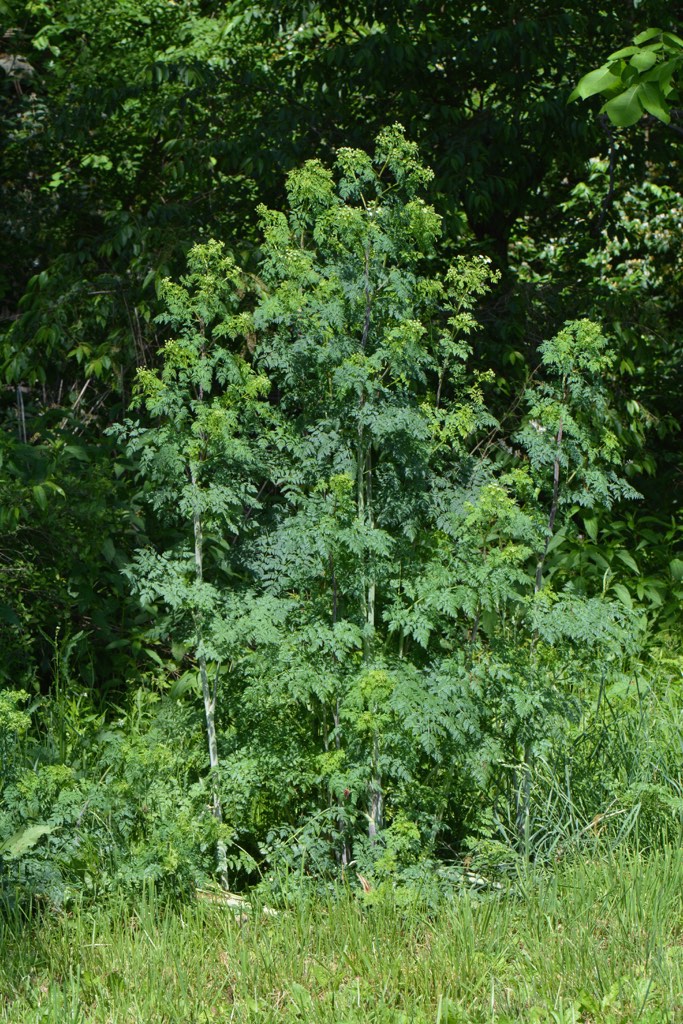Ohio’s Noxious Weeds
Poison hemlock
 Conium maculatum, poison hemlock
Conium maculatum, poison hemlock
Family: Parsley, Apiaceae.
Habitat: Wet sites, gardens, roadsides, wastelands, pastures, and meadows.
Life cycle: Biennial, forming a rosette the first year and producing flowers and seed in the second.
First Year Growth Habit: Basal rosette of finely divided leaves with a pungent odor.
Second-Year Growth Habit: 2-7 feet tall, branched plant with flowers.
Leaves: Alternate, pinnately compound, finely divided, toothed, and glossy green.
Stems: Branched, waxy with purple blotches; hollow between nodes and grooved.
Flower: June – August (second year). Clusters of small white flowers with 5 petals in a loose, umbrella-like cluster, 2-7” across.
Root: Fleshy taproot.
Similar plants: During the first year, poison hemlock resembles wild carrot, but has a strong, pungent odor. Further, young leaves of wild carrot are more finely divided and its stem is hairy. At maturity, poison hemlock can be difficult to distinguish from water parsnip and water hemlock. Look for purple blotches on the stem to identify poison hemlock. Water hemlock (Cicuta maculata), which is also highly poisonous, has a magenta-streaked stem and lanceolate leaflets with sharply-toothed edges. Water parsnip (Sium suave) is not poisonous and has toothed lanceolate leaflets.
The problem is….This plant is highly poisonous to both humans and animals. Poison hemlock is a large and impressive plant which has been planted as an ornamental in some areas. It grows quickly in fertile soils.
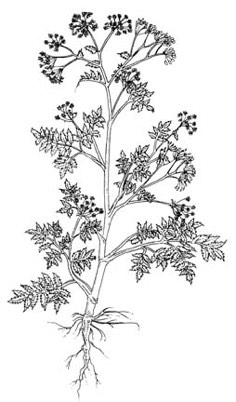
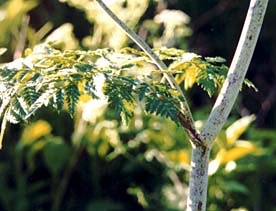
The stems of poison hemlock are typically covered with purplish blotches. The stems are also hollow between the nodes.
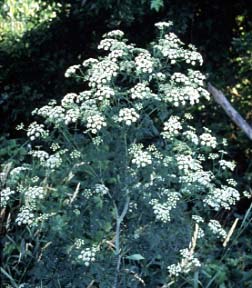
Poison hemlock, allegedly the plant used to poison the Greek philosopher Socrates, is a common sight along Ohio roadsides. All parts of this plant are highly toxic.
